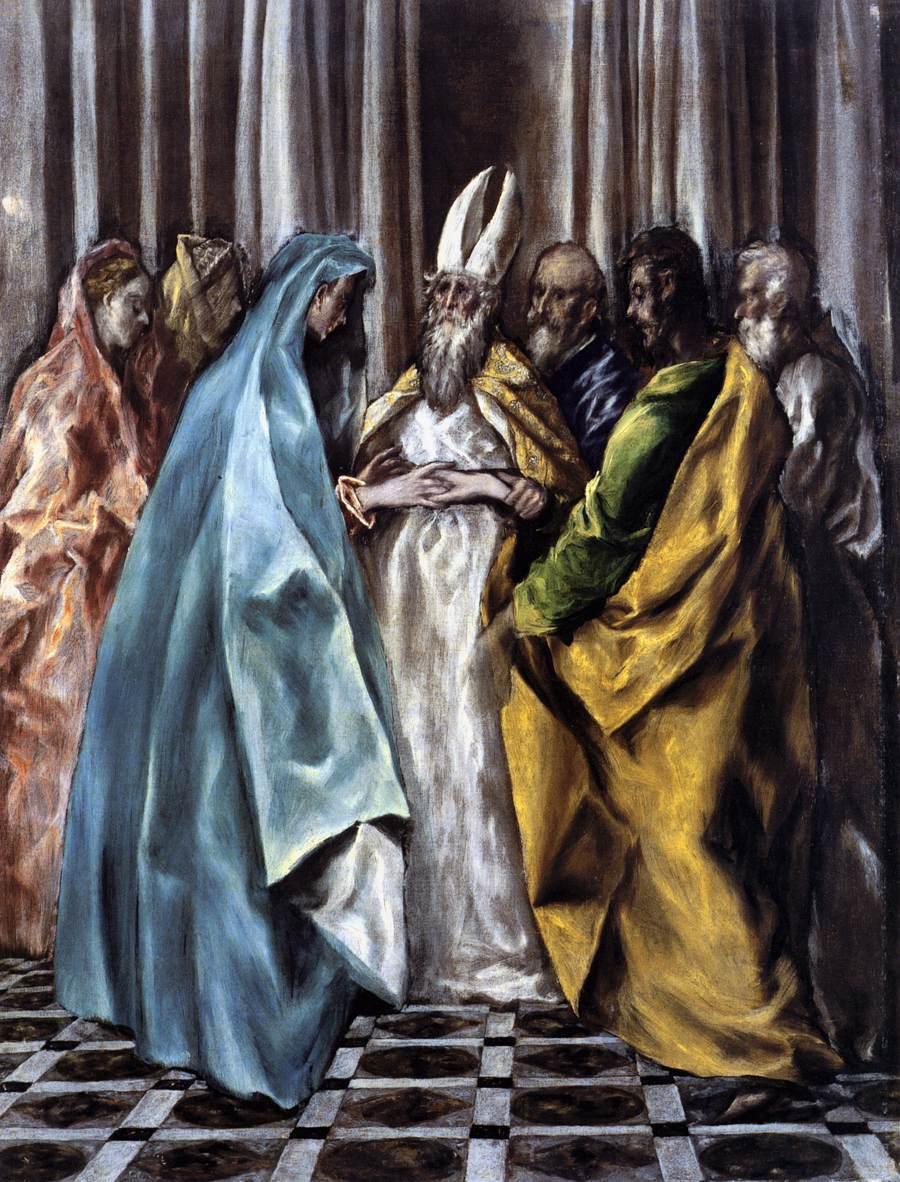Description
El Greco's painting "The Marriage of the Virgin" is a masterpiece of the Spanish Renaissance that has captivated art lovers for centuries. This work represents the moment in which the Virgin Mary and Saint Joseph are married in a religious ceremony in the presence of angels and saints.
El Greco's artistic style is unique and is characterized by the use of bright and contrasting colors, as well as the representation of elongated and stylized figures. In this work, we can see how the figure of the Virgin Mary rises above the others, while Saint Joseph is on a lower plane.
The composition of the painting is very interesting, as El Greco uses the "sacred triangle" technique to create a sense of balance and harmony. The figure of the Virgin Mary is in the center of the triangle, while Saint Joseph and the priest are in the other two vertices.
Color is another outstanding aspect of this work. El Greco uses a palette of bright, saturated colors to create a sense of movement and energy. Gold and red tones predominate in the painting, giving it an air of majesty and solemnity.
The history of the painting is also very interesting. It was commissioned by the Brotherhood of San José in Toledo in 1597 and is believed to have been painted in El Greco's workshop in the city. The work was very well received by the religious community and became one of the artist's most famous.
Finally, there are some little-known aspects of this work that are worth mentioning. For example, it is believed that El Greco used his own face as a model for the figure of Saint Joseph. Furthermore, the painting was stolen twice during the 17th century and had to be restored several times over the centuries.

